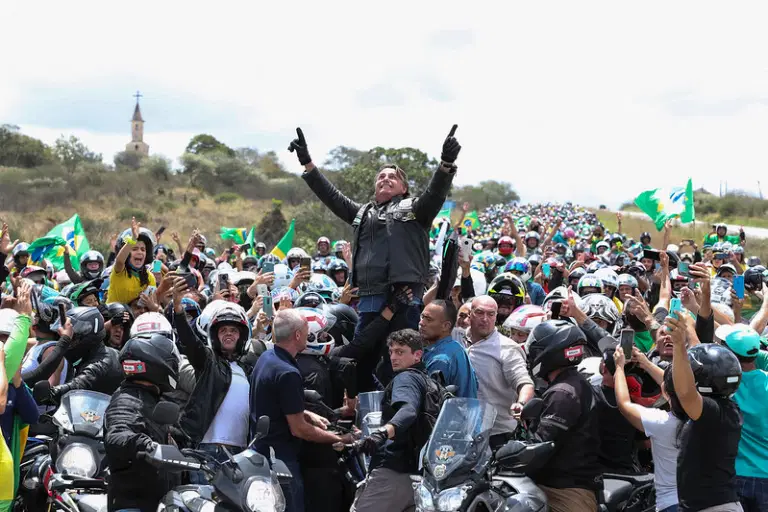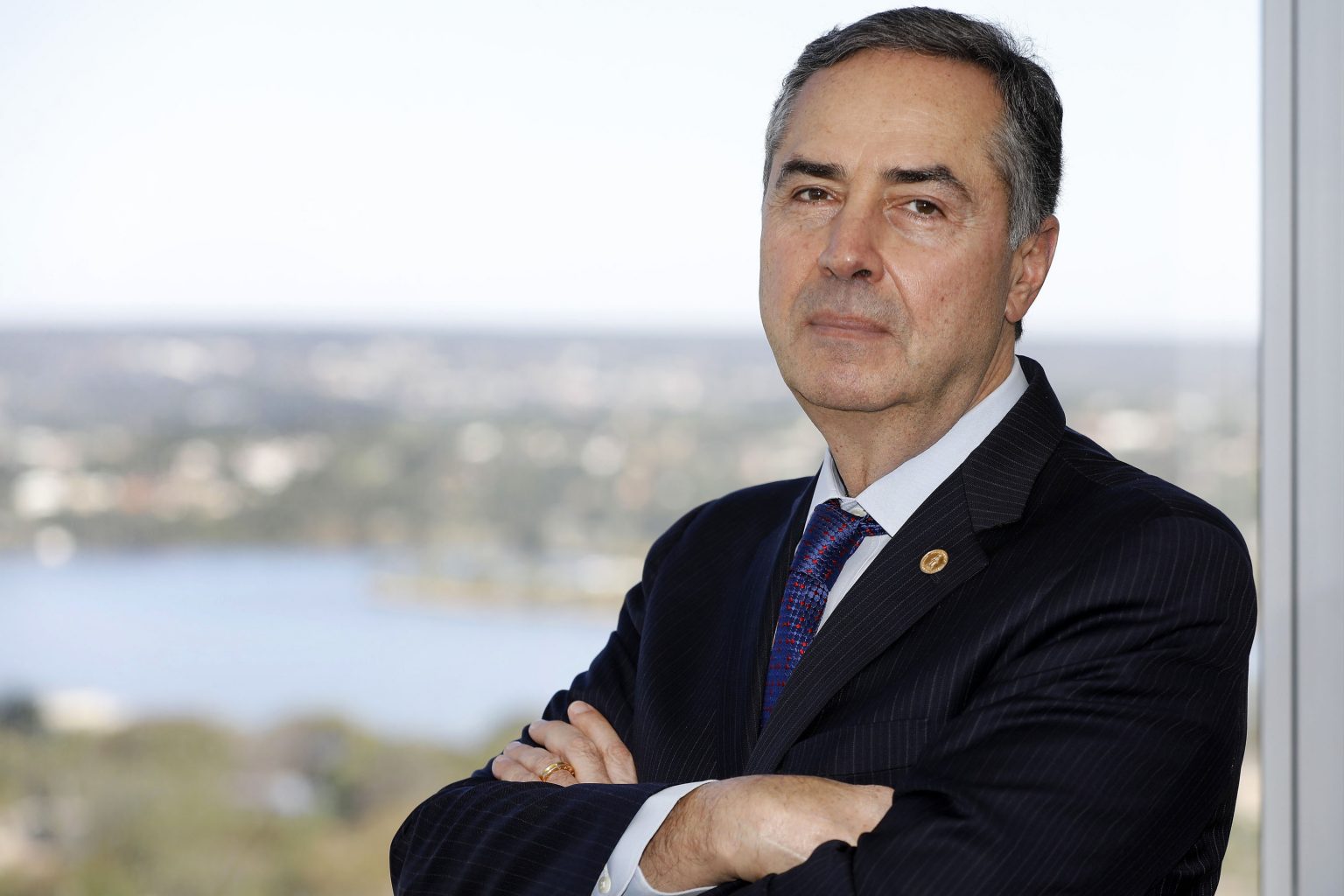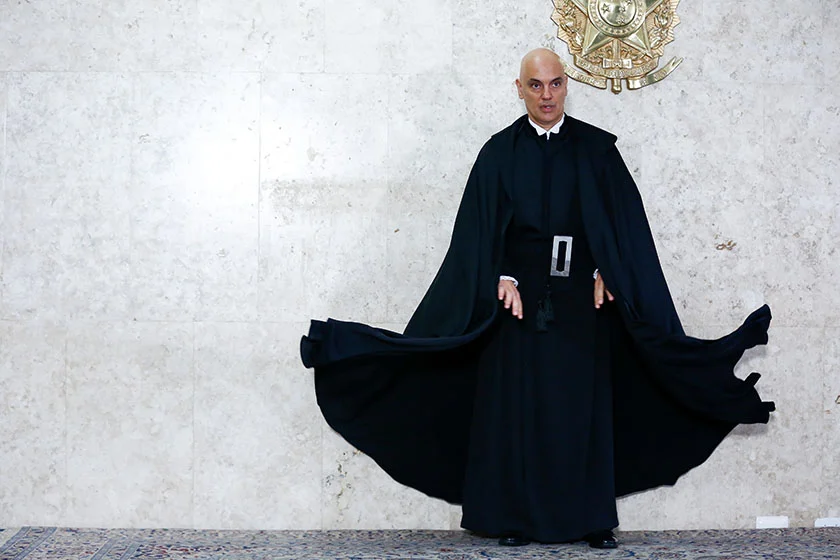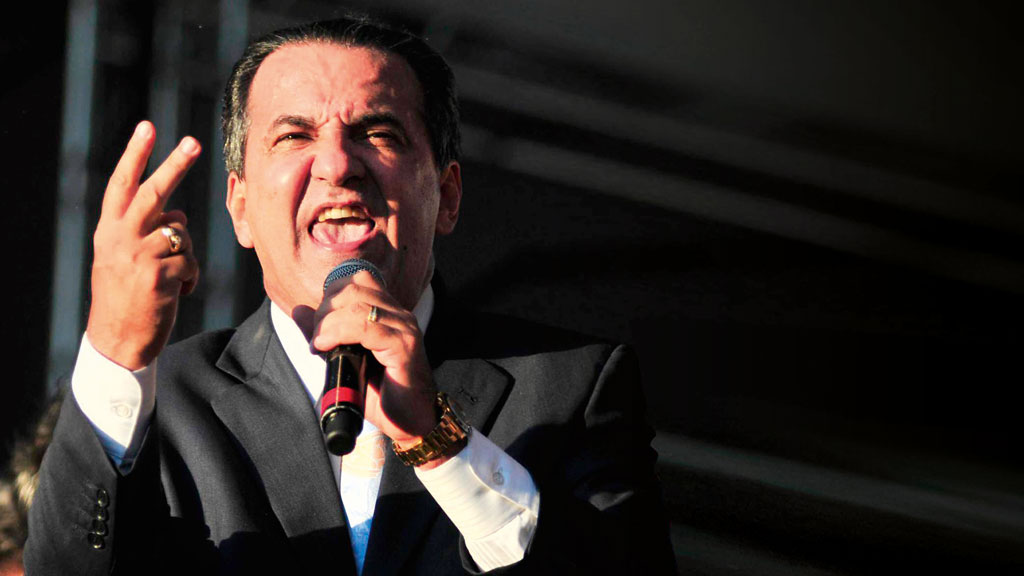RIO DE JANEIRO, BRAZIL – The demonstrations planned for the next holiday on September 7 (Independence Day) in defense of conservative President Jair Bolsonaro are likely to determine the course of the ongoing institutional crisis. They could provide new signals for the presidential election contest in 2022.
Movements sympathetic to the president are mobilizing supporters to occupy the streets of the country’s largest cities with a discourse of considerable criticism of the Federal Supreme Court (STF), the Superior Electoral Court (TSE), the press, and the opposition, in a reshaping of the “anti-establishment” attitude that Bolsonaro has embodied since the 2018 elections.

The narrative in defense of the conservative agenda, Christian values, and the “traditional family” is also believed to have a strong presence at these events. In addition, there will be slogans for “freedom of expression” in light of judicial setbacks faced by Bolsonaro’s allies and growing criticism about the attitude of Brazil’s higher courts.
The event is expected to bring together various groups that formed the coalition that helped Bolsonaro to the presidency. Evangelicals, rural residents, truck drivers, and even police and military personnel are expected to attend.
Bolsonaro announced that he would attend the events in Brasilia in the morning on the Ministry Esplanade and in São Paulo in the afternoon on Avenida Paulista. Caravans will be organized to organize the action and show images of support for the president. Last Thursday (2), in his weekly live broadcast last Thursday, the president said it would be an “unprecedented demonstration in Brazil”.
For some time now, the president and some members of the highest courts have not been getting along well, and the relationship has probably sunk to an all-time low. As with any dispute, each side blames the other for the escalation, and both sides claim the other caused the conflict.
It all began with the creation of the so-called Covid CPI (Senate Investigative Committee) in April 2021 at the instigation of Bolsonaro’s opponents. Its composition was controversial from the outset, as the majority of its members were senators independent of or unfriendly to Bolsonaro.
STF Justice Luis Roberto Barroso, also the Presiding Judge of the TSE, issued a decision demanding the Senate form the Covid CPI, which was the prelude to this passionate enmity between him and Bolsonaro, whose intensity has risen to unprecedented levels to date and is at the center of the institutional crisis that has seized the country.
The creation of the Covid CPI, unique in the world, seemed to aim from the beginning, say critics, to obtain evidence for an impeachment trial against Bolsonaro, through a neatly crafted script to present him as the main culprit for the number of Covid-19 deaths in Brazil. Let’s call this plan “Action Genocide”.
Already in the run-up of the highly hyped Covid CPI spectacle, Bolsonaro was repeatedly called a genocidal by the left and their media friends. The live-broadcast sessions of the Covid CPI reached high TV ratings, raising hopes, especially among the left, of getting rid of the conservative president once and for all.
However, they ultimately did not manage to destroy Bolsonaro’s reputation in the country so thoroughly that he would no longer pose a threat in the 2022 elections.

When “Action Genocide” did not have the desired effect, the president’s enemies are said to have immediately activated Plan B, let’s call it “Action Corruption”.
The Covid CPI and its president, Senator Omar Aziz (PSD-AM), heard testimony [still under investigation] against Bolsonaro for allegedly protecting corruption in the purchase by the Health Ministry of vaccines against Covid-19. Critics say the Covid CPI did that in the hope to ruin the president’s image further.
But even “Action Corruption” did not have the desired effect of permanently damaging the president’s reputation, although in a recent poll for the first time a slim majority of Brazilians now consider the impeachment of Bolsonaro to be defendable.
The frontal attack on Bolsonaro however, led above all to a further escalation of animosities between Bolsonaro and Barroso.
The crisis between the branches of government gained track after Bolsonaro’s proposal for a constitutional amendment (PEC), that would require the addition of a printed ballot, was roundly rejected in Congress.
The idea of introducing an additional security layer with printed ballots and thus anchoring the purely electronic election process more firmly in the “analog” world, makes sense from a factual point of view, according to PEC supporters, who claim there is no such thing as introducing too many security procedures in such vital matters.
Opponents of the PEC, on the other hand, have claimed that the history of electronic ballots, applied in elections every two years since 1996, clearly demonstrates the absence of fraud; they also recall the widespread incidence of vote manipulations when only paper ballots were used.
In July, Jair Bolsonaro criticized three STF Justices – Luís Roberto Barroso, Edson Fachin, and Alexandre de Moraes – for lobbying for the rejection of the PEC that would mandate the printing of receipts from electronic ballot boxes.
“There is a coordination of three Justices of the Supreme Court not to have an auditable vote. If they do not want this, they will have to develop a way to have clean elections. Otherwise, we will have problems next year,” the president said ominously, which was the prelude to his opponents’ talk of the threat of a coup, military dictatorship, and a lack of understanding of democracy on the part of the president.
Then, in mid-August, when the STF ordered the arrest of Roberto Jefferson, head of the Brazilian Labor Party (PTB) and an outspoken ally of Bolsonaro, in an act that surprised many, the institutional crisis between the higher courts and the president got out of hand.
One day later, the Head of state announced that he would ask Congress to initiate impeachment proceedings against two Supreme Court Justices whom he accuses of violating the Constitution by ordering legal actions against him and his supporters.
Bolsonaro’s message was aimed primarily at Justices Luis Roberto Barrosol and Alexander de Moraes.
De Moraes is in charge of the case filed by the STF against allies of the Brazilian president, who are accused of spreading false news on social networks that are alleged to undermine democracy.
There are currently five cases against President Bolsonaro before the STF and one before the TSE: for allegedly attacking the electoral system; for divulging a confidential court document; for spreading allegedly anti-democratic messages; for allegedly interfering with the federal police; and for allegedly protecting corruption in the purchase of vaccines against Covid-19.
In recent weeks, Bolsonaro has continued to sharpen the tone against Barroso and Moraes in his speeches and has actively sought to mobilize supporters for the September 7 actions.
The president says he is moving “within the four lines of the Constitution,” claiming that the judges are overriding democratic rules.
“These one or two people need to understand their place. And the message from you, the Brazilian people, in the street, next Tuesday the 7th, will be an ultimatum to these two people,” he said Friday (2) after an event in the city of Tanhaçu (BA). “Bow to the Constitution, respect our freedom, understand that you are on the wrong path because there is always time to rehabilitate you,” he continued.

Yesterday (4), amid shouts of “Get out, Alexandre” from his supporters, Bolsonaro said that there was a real possibility of a collapse of institutions and that “210 million people will not be hostages to one or two.” In a speech in Caruaru (PE), he said the country has a “date with destiny” on September 7.
In parallel, the imagination of Bolsonaro’s opponents is working overtime, with speculation that there could be a storming of both the Congress and the STF builidngs in Brasilia in a déjà vu of the January 6 Capitol invasion in the United States.
“Any attempt by protesters to invade the National Congress or the Supreme Court would raise the crisis to a level that may be unprecedented in the history of democratization and that the president’s political allies are trying to avoid it. The closer Bolsonaro gets to the collapse of institutions, the further he would be in practice from re-election. The more radical the measures, the greater the rejection among the majority of the population,” says one analyst on the left.
However, an analyst on the right says just the opposite: “A majority of the population is fed up with the intolerable arrogance of the higher courts. But since the major media are all in the hands of Bolsonaro’s opponents, one gets the [wrong] impression and believes that Bolsonaro is in a position of weakness.”
The political left recalls that, in recent opinion polls, if the population were to vote for president today, the sitting president always comes far behind the left-wing candidate, former president Lula da Silva.
EVANGELICALS
But as some minor allies turn away, Jair Bolsonaro’s undoubtedly most important and influential “friends” remain faithful, praying for him in an unprecedented political commitment to the September 7 protest march in the president’s favor.
Some of the country’s leading evangelical pastors have joined together in summoning believers to an act of support for the president, which will occupy Avenida Paulista in São Paulo.

Evangelicals represent over a third of Brazil’s population and are arguably the most powerful and influential political force in the country.
The Bolsonarist leaders include Estevam Hernandes, of the March for Jesus; Samuel Câmara, pioneer of the Mother Church, the first of the Assemblies of God in Brazil founded a century ago in Belém; and Renê Terra Nova, one of the most influential pastoral voices of the North.
“We cannot be silent or cowardly in this decisive moment,” said in a video Assembly of God Victory in Christ leader Silas Malafaia, who launched the movement. “The Brazilian people are the supreme power, and God is the supreme judge.”
The pastors have never shunned Bolsonaro’s invitations in the past.
In 2019, Bishop Edir Macedo (Universal Church of the Kingdom of God) shared Bolsonaro’s presence with TV host Silvio Santos on the stage set up in Brasilia for the Independence Day parade.
In the past, religious leaders only showed up in rendez-vous of vanities alongside the president at official events. However, everything is now different. Today, an influential part of the country’s evangelical leadership demonstrates with and for the president.
The signal sent in Brazil and abroad could not be clearer. It amounts to a thunderclap – particularly as it falls on a date (Independence Day) historically marked by a military procession. “Between the bible and the bullet,” a pastor who will be present on September 7 said ironically.
“The planned presence on September 7 is unprecedented at this scale,” Malafaia said. “Evangelicals have always participated, albeit timidly. I have never seen such mobilization of evangelicals for an event in the history of Brazil. We have always kept to ourselves. This time there is huge participation of leaders and people.”
In the information war between those who say that Jair Bolsonaro started the institutional crisis with an unjustified attack against the STF and is to blame for everything, and those who claim the exact opposite, the powerful religious leaders are backing the president.
One of them says an attack on the Constitution is being promoted by those who should protect it, meaning the STF.
César Augusto cites as one of the reasons for his trip to Avenida Paulista the need to defend “freedom of expression, the right to come and go, and freedom of religion, rights that I see subtly threatened at this moment.”
“Today it’s about freedom of expression, tomorrow it’s about freedom of religion. It’s about much more than Bolsonaro,” Malafaia says. “The Constitution is being torn apart by those who should honor it the most.”

